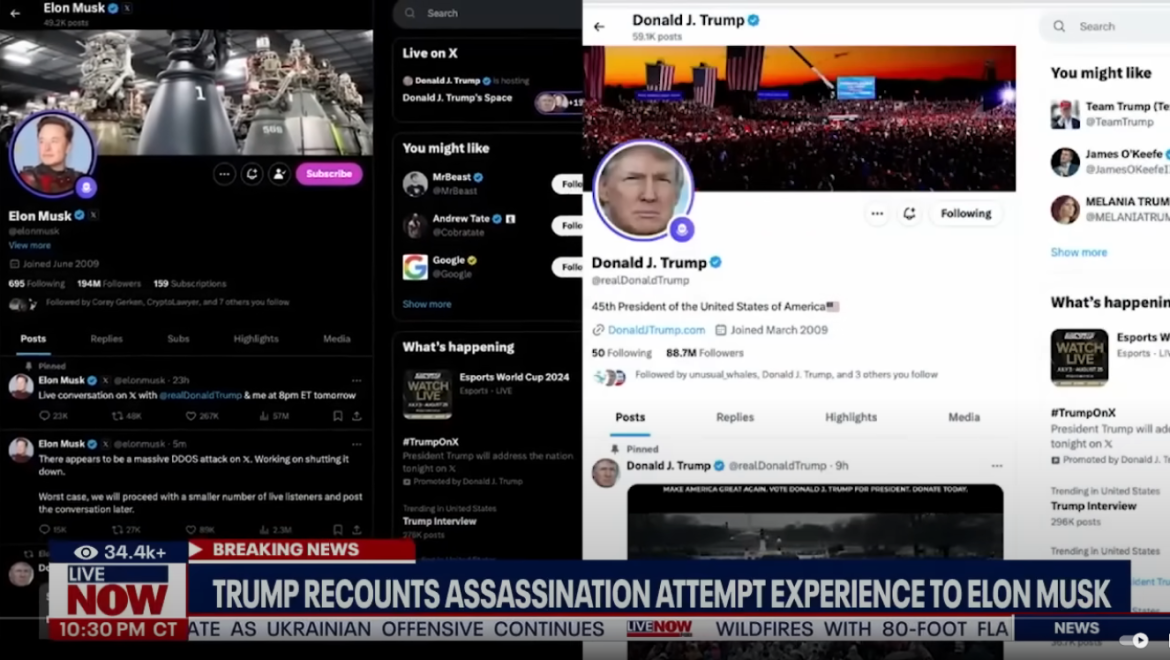Last night, over 1.3 million viewers tuned in to X, formerly known as Twitter, to watch an unprecedented two-hour conversation between former President Donald Trump and billionaire entrepreneur Elon Musk. Despite technical difficulties that caused a delayed start, the discussion, which covered a wide range of topics from the attempted assassination of Trump in Pennsylvania to global issues like immigration, Russian President Vladimir Putin, and the looming threat of global warming, captivated the audience.
However, the conversation has now ignited a firestorm of controversy. The United Auto Workers (UAW) union has filed federal labor charges against both Trump and Musk, accusing them of violating labor laws during the discussion. The charges stem from Trump’s praise of Musk’s handling of potential labor strikes at Tesla, the electric car company Musk owns.
During the interview, Trump lauded Musk for his tough stance against workers who threatened to strike, suggesting that such decisive action was necessary to maintain order and productivity. “Elon did what was needed,” Trump said. “You can’t let them [workers] push you around, and firing them was the right move.”
The UAW, one of the largest labor unions in the United States, immediately responded, asserting that Trump’s comments and Musk’s actions are in direct violation of federal labor laws. According to the UAW, it is illegal under U.S. law to fire workers for striking or threatening to strike. The union argues that Musk’s actions at Tesla, if accurately described by Trump, represent a clear breach of workers’ rights.
“The statements made during that conversation are deeply troubling,” said a UAW spokesperson in a press release. “Workers have a fundamental right to strike without fear of retaliation, and any action taken against them for exercising this right is not only illegal but also a direct attack on the labor movement.”
The timing of these charges is particularly significant, as the UAW recently endorsed Vice President Kamala Harris for the 2024 presidential election, signaling their strong opposition to Trump’s potential return to the White House. The union’s endorsement of Harris underscores their alignment with the current administration’s pro-labor stance and further heightens the political tensions surrounding the 2024 campaign.
Elon Musk, who has been a polarizing figure in the business world, has yet to respond to the UAW’s charges. His company, Tesla, has previously faced criticism for its labor practices, including accusations of union-busting and poor working conditions at its factories. This latest incident is likely to exacerbate tensions between Musk and labor unions, which have been simmering for years.
As the legal battle unfolds, the conversation on X serves as a reminder of the powerful influence that high-profile figures like Trump and Musk wield over public opinion and policy. Their comments not only draw massive audiences but also have real-world implications, particularly when they touch on sensitive issues such as labor rights.
The UAW’s decision to file charges against both Trump and Musk sets the stage for a significant legal and political confrontation, one that could have far-reaching consequences for the future of labor relations in the United States. With the 2024 election on the horizon, this clash between powerful personalities and organized labor is likely to become a major point of contention.



